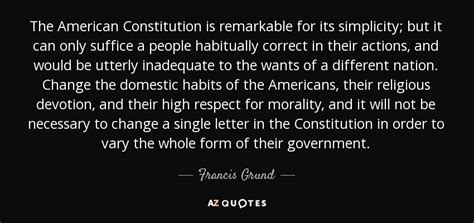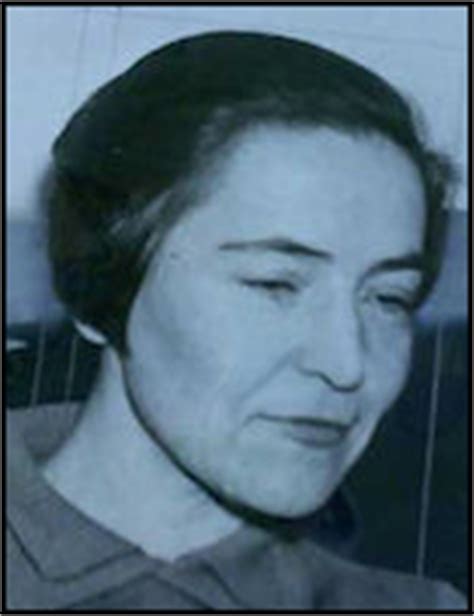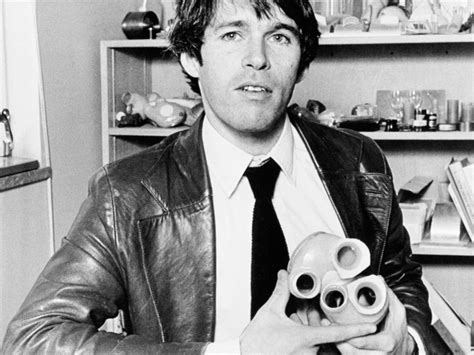A Quote by Francis Grund
I consider the domestic virtue of the Americans as the principle source of all their other qualities. It acts as a promoter of industry, as a stimulus to enterprise and as the most powerful restraint of public vice. . . . No government could be established on the same principle as that of the United States with a different code of morals.
Related Quotes
There can be no compromise between freedom and government controls; to accept 'just a few controls' is to surrender the principle of inalienable individual rights and to substitute for it the principle of the government’s unlimited, arbitrary power, thus delivering oneself into gradual enslavement. As an example of this process, observe the present domestic policy of the United States.
I do verily believe that if the principle were to prevail of a common law being in force in the United States (which principle possesses the general government at once of all the powers of the state governments, and reduces us to a single consolidated government), it would become the most corrupt government on the earth.
If there be a principle that ought not to be questioned within the United States, it is that every man has a right to abolish an old government and establish a new one. This principle is not only recorded in every public archive, written in every American heart, and sealed with the blood of American martyrs, but is the only lawful tenure by which the United States hold their existence as a nation.
In [the soul] one part naturally rules, and the other is subject, and the virtue of the ruler we maintain to be different from that of the subject; the one being the virtue of the rational, and the other of the irrational part. Now, it is obvious that the same principle applies generally, and therefore almost all things rule and are ruled according to nature.
Our commitment to this founding principle is especially relevant today. Americans are united as rarely before in compassion and generosity for our fellow citizens whose lives have been devastated by Hurricane Katrina. The powerful winds and floodwater of Katrina tore away the mask that has hidden from public view the many Americans who are left out and left behind.
Philosophers should consider the fact that the greatest happiness principle can easily be made an excuse for a benevolent dictatorship. We should replace it by a more modest and more realistic principle - the principle that the fight against avoidable misery should be a recognized aim of public policy, while the increase of happiness should be left, in the main, to private initiative.
[the virtues] cannot exist without Prudence. A proof of this is that everyone, even at the present day, in defining Virtue, after saying what disposition it is [i.e. moral virtue] and specifying the things with which it is concerned, adds that it is a disposition determined by the right principle; and the right principle is the principle determined by Prudence.



























